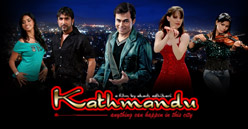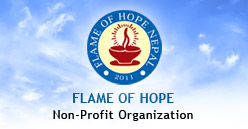
The amazing topographical feature of the northern Himalayan range of Nepal is absolutely stunning. The unpredictable lifestyle and the mysterious culture of the Himalayas are even more stunning. The most rare and acclaimed polyandry system still exists and is in practice in this region. Thus, it’s an effort of the The Sky Movies Pvt. Ltd. to bring this unique cultural practice into the limelight of everyone via a Docudrama film called “The Sunrise” (Sonam and her Husbands!) under the banner of “The Sky Movies Pvt. Ltd”.
The plausible plot of the film aims to capture the astonishing beauty of the Himalayas concentrating on the essence and impacts of the polyandry system in the Himalayan region. More on the film will be the exploration of unique cultural dimension that is apart from the whole world.
Embedded in the mystical culture of polyandry in the solitary high Himalayas “The Sunrise” portrays Sonam’s lifelong vigorous attempt of human mutiny against the traditional constraints.
Synopsis:
Most of the people living in the northern Himalayan region of Nepal have their faith in Buddhism. The inhabitants of the area follow agricultural occupation and keep horses, mules and yak and make their living by transporting goods on the backs of these animals. They like to live in joint families to protect and enlarge the combined property without splitting it into tight nuclear units. For this reason, some societies in this region have been practicing polyandry as their traditional way of living.

Dorje Jigme, a man of 51 years, with substantial wealth of several heads of yaks and mules, is well respected in his neighborhood. He gets Sonam, a local girl, married to his sons. Because of the tradition of polyandry, three of Dorje's sons, namely Karma of 29 years, Lakpa of 25 years and Tshering of just 5 years, become Sonam's husbands, except the second son Tashi, who has due to Buddhist custom opted for monkshood. Although Sonam from the bottom of her heart regards the eldest brother karma as her real husband, she has to follow what the social tradition imposed on her and treat all the brothers as her husbands.
Dorje Jigme or the head of the family decides who among the brothers will live for how long at home, who will go to the yak herds up in the mountains and who will drive the mules down the valley or stay away from home, as two husbands are not allowed to be with Sonam at the same time. When the turn of Karma comes to an end he goes out and Sonam is obliged to spend her nights with another husband unwillingly. In a situation like this, children given birth by Sonam will have hard time recognizing their father and distinguishing between father and uncle. Lakpa and Karma often clash and quarrel between themselves on the issue of wife and children.
Suddenly, the village faces an animal epidemic. And in the process of the inhabitants moving out from their village to another with their animals, Karma Sonam's eldest husband, dies in an accident. Karma's dead body is then cut to pieces and offered to eagles and vultures as his last rite according to Buddhist custom. As the time passes, Sonam's children grow, the eldest son being 16 years, and the other children 13, 10 and 7 respectively, along with Tshering, Sonam's youngest husband, who is now a young man of twenty-two. Pema, a teacher at the village school, admires Tshering's talents with his victory in the target hitting competition (the Metha Festival). Pema and Tshering fall in deep love with each other and decide to marry with the consent of Pema's guardians. After some time a horse racing competition (Yarthong) is at hand, but unfortunately the second husband of Sonam also loses his life with a severe fall from the horse. Now the society bent on breaking the would-be wedlock of Tshering and Pema begin to put pressure on Tshering to accept Sonam as his wife. But Tshering refuses to do so, as he likes to live freely with Pema, the girl of his liking, by marrying her. Similarly, Sonam too does not agree to take Tshering, who is 19 years younger and like her son, as her husband. The old people of the society worry that the young persons are destroying the traditional custom.
The film takes a different turn when the youngest husband, whose age is almost same as her son, chooses to marry a girl of his own choice. There is a clash between the tradition and modernity.





.jpg)

.jpg)




.jpg)
.jpg)
.jpg)




